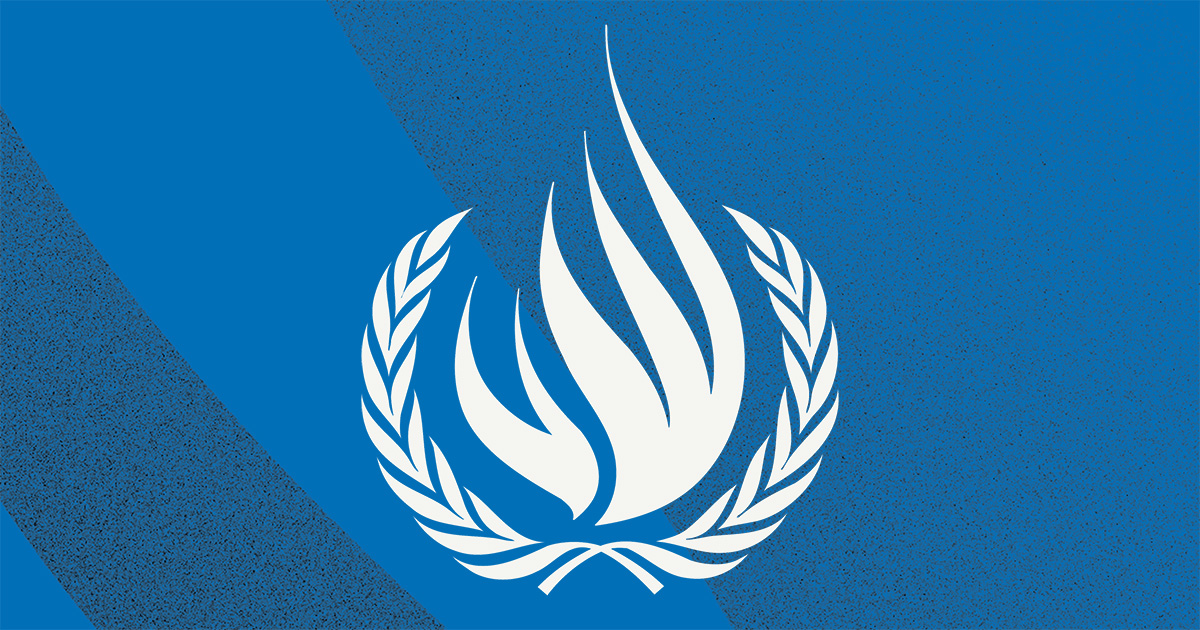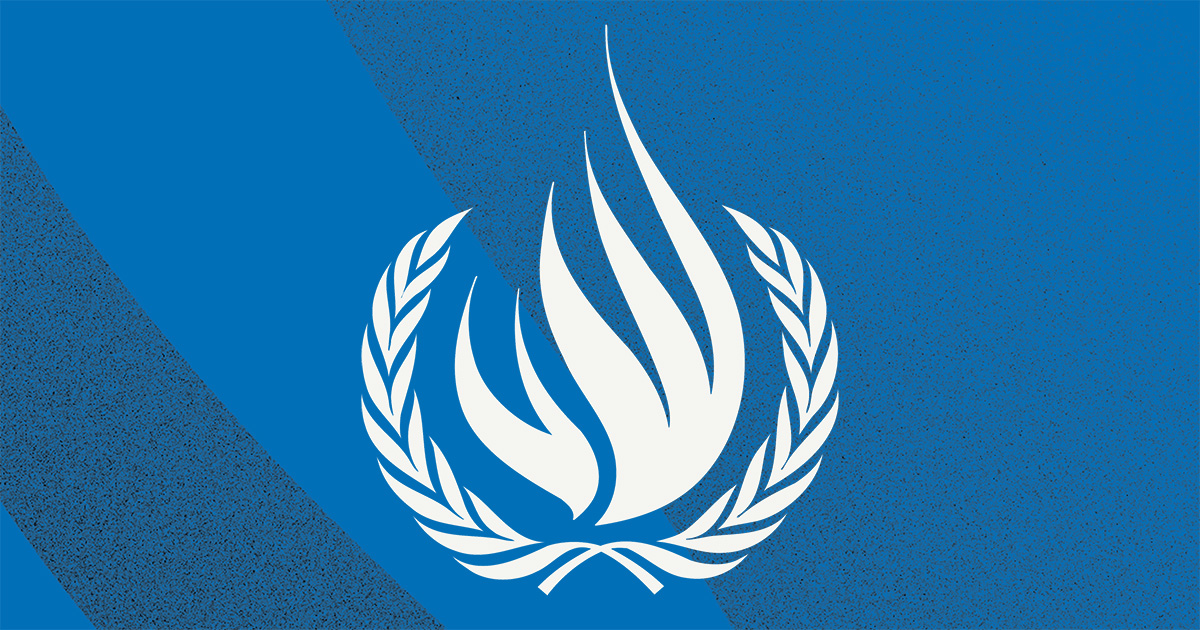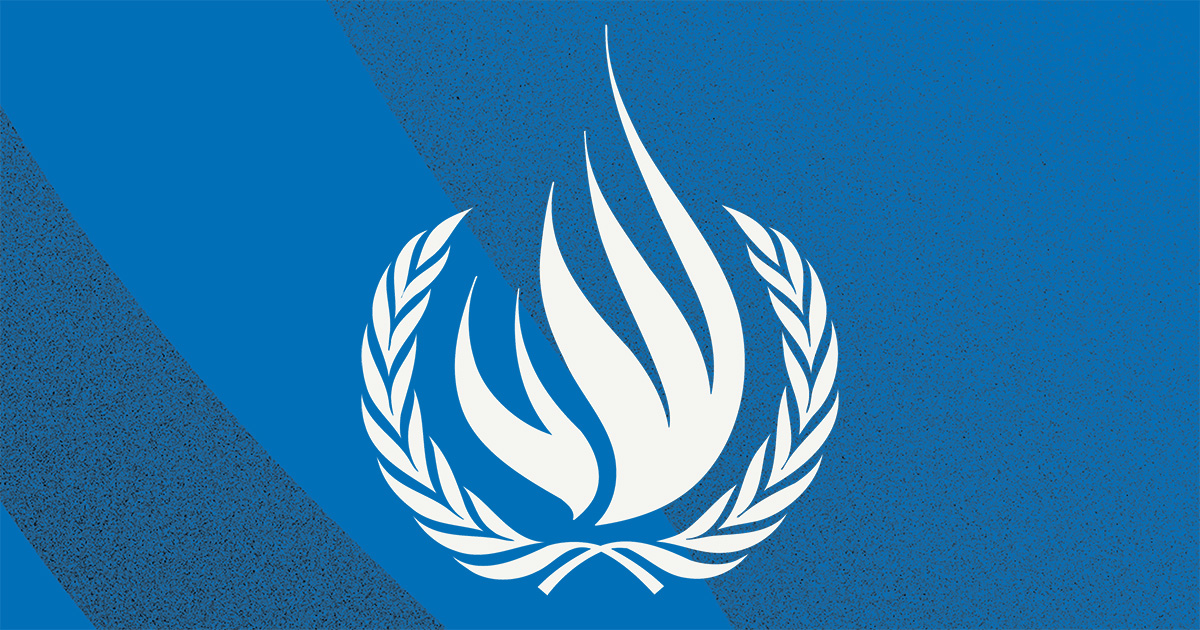
GENEVA (10 May 2024) – UN experts* today expressed utter dismay over statements made by United States and Israeli officials threatening to retaliate against the International Criminal Court (ICC), its officials and members of their families.
“At a time when the world should unite to end the terrible bloodshed in Gaza and seek justice for those unlawfully killed, injured, traumatised, or taken hostage, since October 7, it is distressing to see State officials threatening to retaliate against a Court for pursuing international justice,” the experts said.
On Friday, 4 May, the Office of the Prosecutor (OTP) denounced statements that “threaten to retaliate against the Court or against Court personnel” for actions taken by the Prosecutor. The OTP’s statement reminded all individuals that threats of retaliation may amount to an offense against the administration of justice under Article 70 of the Rome Statute.
“It is shocking to see countries that consider themselves champions of the rule of law trying to intimidate an independent and impartial international tribunal to thwart accountability,” the experts said.
“Threats of retaliatory action violate human rights norms against attacks on justice personnel and exceed the accepted limits of freedom of expression. We call on all States to respect the Court’s independence as a judicial institution and protect the independence and impartiality of those who work within the Court.”
The experts recalled that politicians and public officials play an important role in shaping the media agenda, public debate and opinion. As a result, ethical behaviour and attitudes on their part, including in their public communications, are essential for promoting the rule of law, protection of human rights, and for ensuring public trust in democratic systems of governance, they warned.
In recent weeks, authorities in the United States and Israel have made inflammatory statements concerning the ICC, characterising the Prosecutor’s potential actions as “lawless,” “disgraceful,” and any possible warrants as “an outrageous assault” and “an abomination”. Such comments have persisted for more than a week amid reports that Congressional leaders in the United States are preparing possible retaliatory action, including sanctions on individuals who work for the Court and efforts to de-fund the ICC, should arrest warrants be issued against Israeli officials, and threats from the Israeli Finance Minister to also withhold funds from the Palestinian Authority.
The experts recalled that the ICC has the mandate to investigate and prosecute individuals for the grave international crimes of genocide, war crimes, and crimes against humanity.
The Court’s judges have authorised the ICC Prosecutor to investigate crimes committed on the territory of the State of Palestine since 2014 by any individual—whether Palestinian, Israeli, or another nationality —and any such crimes committed by Palestinian nationals, including crimes that took place inside Israel. The ICC Prosecutor has stated that his ongoing investigation includes recent events in occupied Gaza and West Bank.
“A majority of the world’s countries support the Court,” they said. “The ICC’s role is more crucial than ever. Impeding the work of the Court and its Prosecutor will be detrimental, not only for accountability in the occupied Palestinian territory but for international justice as a whole.”
The experts have been in touch with Israel and the United States about these concerns.
*The experts: Margaret Satterthwaite, Special Rapporteur on the independence of judges and lawyers; Francesca Albanese, UN Special Rapporteur on human rights in the Palestinian territories occupied since 1967; Ben Saul, Special Rapporteur on the promotion and protection of human rights and fundamental freedoms while countering terrorism; Cecilia M Bailliet, Independent Expert on human rights and international solidarity; Siobhán Mullally, Special Rapporteur on trafficking in persons, especially women and children; Paula Gaviria Betancur, Special Rapporteur on the human rights of internally displaced persons; Irene Khan, Special Rapporteur on the promotion and protection of the right to freedom of opinion and expression; George Katrougalos, Independent Expert on the promotion of a democratic and equitable international order; Bernard Duhaime, Special Rapporteur on the promotion of truth, justice, reparation and guarantees of non-recurrence; Marcos A. Orellana, Special Rapporteur on the implications for human rights of the environmentally sound management and disposal of hazardous substances and wastes ; Gina Romero, Special Rapporteur on the Rights to Freedom of Peaceful Assembly and of Association; Ashwini K.P., Special Rapporteur on contemporary forms of racism, racial discrimination, xenophobia and related intolerance; Graeme Reid, Independent Expert on protection against violence and discrimination based on sexual orientation and gender identity; Surya Deva, Special Rapporteur on the right to development; Aua Baldé (Chair-Rapporteur), Gabriella Citroni (Vice Chairperson), Angkhana Neelapaijit, Grażyna Baranowska, Ana Lorena Delgadillo Pérez, Working Group on Enforced or Involuntary Disappearances; Tomoya Obokata, Special Rapporteur on contemporary forms of slavery, including its causes and consequences; Astrid Puentes, Special Rapporteur on the human right to a clean, healthy and sustainable environment; Farida Shaheed, Special Rapporteur on the right to education; Michael Fakhri, Special Rapporteur on the right to food; Pedro Arrojo-Agudo, Special Rapporteur on the human rights to safe drinking water and sanitation; Dorothy Estrada Tanck (Chair), Claudia Flores, Ivana Krstić, Haina Lu, and Laura Nyirinkindi (Vice-Chair), Working group on discrimination against women and girls; Jose Francisco Calí Tzay, Special Rapporteur on the rights of Indigenous Peoples; Nicolas Levrat, Special Rapporteur on Minority issues; Alexandra Xanthaki, Special Rapporteur in the field of cultural rights; Mary Lawlor, Special Rapporteur on the situation of human rights defenders; Balakrishan Rajagopal, Special Rapporteur on the right to adequate housing; Richard Bennett, Special Rapporteur on the situation of human rights in Afghanistan; Matthew Gillett (Chair-Rapporteur), Priya Gopalan (Vice-Chair on Follow-Up), Miriam Estrada-Castillo, and Mumba Malila, Working Group on arbitrary detention; Reem Alsalem, Special Rapporteur on violence against women and girls, its causes and consequences; Barbara G. Reynolds (Chair), Bina D’Costa, Dominique Day, Working Group of Experts on People of African Descent; Olivier De Schutter, Special Rapporteur on extreme poverty and human rights; Anaïs Marin, Special Rapporteur on the situation of human rights in Belarus
The Experts are part of what is known as the Special Procedures of the Human Rights Council. Special Procedures, the largest body of independent experts in the UN Human Rights system, is the general name of the Council’s independent fact-finding and monitoring mechanisms that address either specific country situations or thematic issues in all parts of the world. Special Procedures experts work on a voluntary basis; they are not UN staff and do not receive a salary for their work. They are independent of any government or organisation and serve in their individual capacity.
UN Human Rights, Country Page - Israel
For further information and media requests, please contact: Melanie Santizo (+41 22 917 9963/ melanie.santizosandoval@un.org) or write to hrc-sr-independencejl@un.org
For media enquiries regarding other UN independent experts, please contact Dharisha Indraguptha (dharisha.indraguptha@un.org) or John Newland (john.newland@un.org)
Follow news related to the UN"s independent human rights experts on Twitter @UN_SPExperts.
Situation in the Occupied Palestinian Territory and Israel
See all Media coverage of the situation












